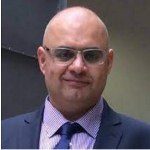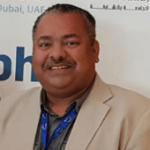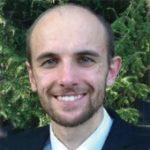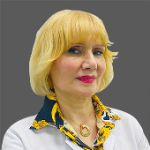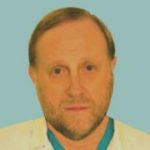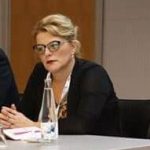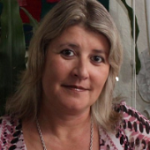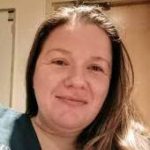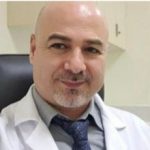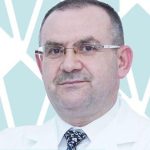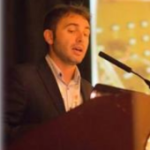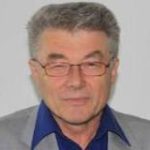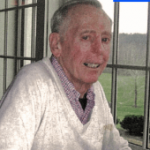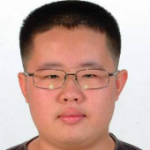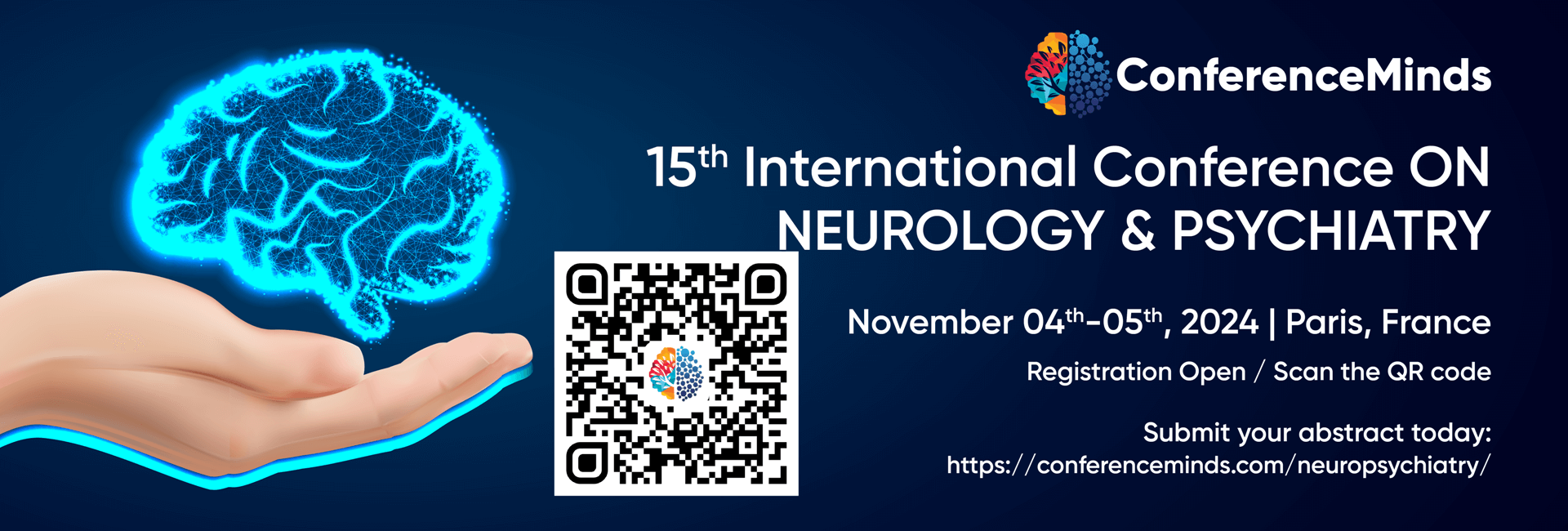
15th International Conference
ON
NEUROLOGY & PSYCHIATRY
Event Date
November 04-05, 2024
Venue
Paris, France
– Previous Conference Performers / Professionals From Around The Globe –
Media Partners/Collaborator
A huge thanks to all our amazing partners. We couldn’t have a conference without you!



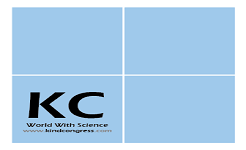



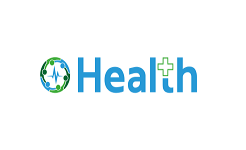


Sponsors/Exhibitors
A huge thanks to all our amazing partners. We couldn’t have a conference without you!


NEUROLOGY CONFERENCE 2024
Greetings from the esteemed “15th International Conference on Neurology & Psychiatry” set to take place on November 4-5, 2024, in the vibrant city of Paris, France.
Neuropsychiatry 2024 is poised to be a pivotal platform for deliberating on the latest advancements in the field of neurology, with a special focus on “Know the Unknown Advanced Solutions in Neurology.” We extend a warm invitation to all participants, alongside prominent figures, to our exclusive Neurology Conferences. Our close collaboration with innovative Neurology Conference Solutions reflects the exceptional progress made in the Diagnostic and Therapeutic Conference over the past year. Our dedication is unwavering in providing state-of-the-art treatments for neurological disorders to the public. Beyond the realms of education and science, Neuropsychiatry 2024 presents excellent opportunities for networking and communication. Emerging from more than two years of pandemic restrictions, we eagerly anticipate the chance to observe, learn, and connect with one another.
The Neuropsychiatry 2024 conference spans six different regions across the globe, each with its distinct healthcare infrastructure, cultural norms, and unique neurological challenges. Serving as a vital forum, this congress aims to disseminate clinical expertise, chart individualized career paths, foster scientific research, and mentor the future generation. Over the course of this two-day educational program, knowledge will be shared through a blend of presentations, case-based discussions, and in-depth Q&A sessions. Renowned experts from various fields will convene to explore the impact of new knowledge and cutting-edge medications on the treatment of neurological disorders in an engaging and informative manner. We invite you to re-join us, uniting to strengthen our understanding of human decisions, actions, and mental processes through the enlightening sessions of Neuropsychiatry 2024.
This year’s conference will benefit from the broad range of specialists working in the field of Neurology thanks to its novel theme, “Empowering Neurology Uniting Science Innovation and Compassion”. Neuropsychiatry 2024 invites and welcomes Speaker, delegates, presenters, sponsors, and exhibitors from all over the globe. We are delighted to invite you all to participate and register for the Neurology Conference. We invite you to join us at the Neuropsychiatry 2024, where you will be sure to have a meaningful experience with scholars from around the world.
Why to Attend the Neurology-2024
Stay Informed: Stay at the forefront of neuroscience and neurology by gaining access to the latest research, breakthroughs, and developments in the field.
Network with Experts: Connect with leading experts, clinicians, researchers, and academics from around the world. Build valuable professional relationships and collaborations that can drive your career forward.
Diverse Perspectives: Gain insights from a diverse range of perspectives and approaches to tackling the complex challenges of neurology and brain science.
Enhance Clinical Practice: Attend sessions that focus on practical applications, providing you with tools and techniques to improve patient care and outcomes.
Interactive Workshops: Participate in hands-on workshops that allow you to apply new skills and knowledge directly to your work.
Inspiring Keynotes: Be inspired by keynote speakers who are pioneers in their respective fields, sharing their wisdom and vision for the future of neurology and neuroscience.
Exhibition Showcase: Explore the latest technologies, products, and services in the exhibition area. Discover innovative solutions that can benefit your research or practice.
International Experience: Immerse yourself in the multicultural atmosphere of Amsterdam, a city renowned for its history, art, and vibrant social scene.
Contribute to Science: Share your own research and insights through presentations and poster sessions, contributing to the collective knowledge of the neuroscience community.
Awards and Recognition: Get a chance to be recognized for your exceptional contributions to the field through our Excellence Awards program.
Community Building: Become part of a global network of professionals dedicated to improving brain health and addressing neurological challenges.
Target Audience
- Neurologists
- Neuroscientists
- Clinicians
- Academics and Researchers
- Pharmaceutical and Biotech Professionals
- Neurology Residents and Fellows Rehabilitation Specialists
- Neurology Nurses
- Healthcare Administrators
- Patient Advocates
- Medical Students
- Medical Technology Developers
- Government and Regulatory Representatives
- Nonprofit Organizations
- Educational Institutions
- Pharmaceutical and Healthcare Industry Professionals
Conference Highlights
- Neurology & Neuroscience
- Neurological Case Reports
- Neuropsychiatry and Neuropsychology
- Clinical Neurology
- Neurogenesis
- Neurology and COVID-19
- Cognitive Neuroscience
- Neural Circuits and Neural feedback
- Cryptogenic Stroke and Antiplatelet Therapy
- Brain Stroke
- Paediatric Neurology
- Nursing Education and Research
- Neuro–pharmaceutics and Neurophysiology
- Neuromuscular Disorders
- Neurochemistry
- Neuroimmunology
- MOG antibody disease (MOGAD)
- Neuro–Oncology & Tumours
- Neuropathology and Neuroradiology
- NeuroInfections
- Bioimaging Techniques and Biomarkers, Biosimilars
- Tele–Psychiatry
- Neurophthalmology
- Genomics & Molecular Neurology
- Dementia & Alzheimer’s disease
- Neurodegenerative diseases
- Mental Illness and Neurological Disorders
- Bipolar disorder & Schizophrenia
- Eating Disorders
- Addiction
- Neurogenetic and Neurometabolic Disorders
- Woman’s Mental Health
- Advanced Therapeutics for Mental Health Disorders
- Impact of Mental Illness on Society
- Post-Traumatic Stress Disorder
- Neurologists, Neurosurgeons & Neuroscientist
- Neuroplasticity
- Spine Surgery & Disorders
- Computational Neuroscience
- Stroke Rehabilitation and Brain Haemorrhage
- Anxiety & Depression
- Neuropharmacology
- Food Nutrition and Health
Sessions and Tracks
Track 1: Neurology
Neurology, as a highly specialized branch of medicine, focuses on the intricate and delicate realm of the nervous system. Comprising the central and peripheral systems, along with coverings, blood vessels, and effector tissues, this vast network is navigated by neurologists who are dedicated to investigating, diagnosing, and treating diseases that impact the brain, spinal cord, and nerves. Surgical interventions, when necessary, fall under the expertise of neurosurgeons. Their role is crucial in addressing conditions ranging from common neurological ailments to more complex cases demanding surgical precision.
Track 2: Clinical Neurophysiology
Clinical neurophysiology, a therapeutic specialty, involves a comprehensive exploration of the central and peripheral nervous systems through the analysis of bioelectrical activity. Beyond traditional laboratory settings, professionals in this field utilize clinical methods to study pathophysiology and diagnose various conditions. Tests conducted delve into the electrical functions of the brain, nerves, muscles, and spinal cord, providing valuable insights for accurate diagnosis and targeted treatment.
Track 3: Neurosurgery
Neurosurgery, an integral part of medical care for nervous system disorders, engages neurosurgeons in preventing, diagnosing, and treating a wide spectrum of injuries or conditions affecting the nervous system. From addressing back and neck pain to managing critical cases like tic douloureux, head injuries, and epilepsy, neurosurgeons play a pivotal role in ensuring the well-being of patients with neurological issues.
Track 4: Central Nervous System
The central nervous system, encompassing the brain and spinal cord, acts as the command center for the entire nervous system. Diseases affecting this vital system can manifest as neurological or psychiatric disorders, arising from various factors such as trauma, infections, structural abnormalities, degeneration, and tumors. This track delves into the intricate landscape of mood disorders, neurodegenerative conditions, schizophrenia, and more.
Track 5: Pediatric Neurology
Pediatric neurology specializes in addressing neurological issues in children and teenagers. This track emphasizes early diagnosis and intervention for conditions such as ischemic neurology, hemorrhagic stroke, and traumatic neurology, recognizing the importance of swift action in cases presenting with common signs like sudden weakness or paralysis on one side of the body.
Track 6: Neuromuscular Diseases
Neuromuscular diseases impact the nerves controlling voluntary muscles, leading to weakness, cramps, pain, and movement issues. Conditions like ALS, multiple sclerosis, and myasthenia gravis fall under this category, affecting both voluntary and involuntary muscles.
Track 7: Psychiatry and Psychology
Psychiatry, a specialized medical field, concentrates on the diagnosis and treatment of mental disorders and is complemented by psychology. This track explores various therapeutic approaches, including hypnotherapy, and delves into the intricate interplay between psychological and neurological conditions. Understanding the intersection of these disciplines is crucial for comprehensive patient care.
Track 8: Spine and Spinal Diseases
Chronic and acute spine diseases affecting individuals of all ages are thoroughly examined in this track. Causes can range from injuries and infections to blocked blood flow and compression due to fractures or tumors. Modern diagnostic tools play a crucial role in understanding and treating a myriad of spinal diseases, ensuring tailored interventions for improved patient outcomes.
Track 9: Neurogenetic and Neurometabolic Diseases
Neurogenetic and neurometabolic diseases impact brain function due to genetic abnormalities or issues with cellular enzymes. This track covers a wide spectrum, including gene mutations, neural engineering, cancer neurogenetics, and diseases affecting children of all ages, races, and genders. Addressing these conditions requires a multidisciplinary approach for effective management.
Track 10: Neuropharmacology
Neuropharmacology is the study of how drugs influence cellular function in the nervous system, encompassing both behavioral and molecular aspects. This track explores a broad range of topics, from anti-anxiety medications and recent drug developments to neuroimmunopharmacological drugs and advancements in therapy. Understanding the pharmacological nuances is essential for developing targeted interventions.
Track 11: Nursing and Neuroscience
Neuroscience nursing plays a crucial role in addressing neurological issues, from injuries to infections and chronic conditions. Nurses are at the frontline of caring for patients with strokes, multiple sclerosis, and other long-term neurological conditions. Their role extends to providing holistic care, supporting patients and their families throughout the continuum of neurological care.
Track 12: Neuroimmunology and Neuroinfections
Neuroimmunology explores the intersection of neuroscience and the immune system, addressing neurologic issues resulting from infections, inflammation, and immune responses. This track investigates the intricate relationship between the nervous and immune systems, shedding light on conditions that require a nuanced understanding of both disciplines.
Track 13: Brain Tumor and Neuro-oncology
This track delves into the study of abnormal cell growth and unexpected responses in the central nervous system, leading to the development of brain and spinal tumors. Neuro-oncology focuses on understanding and treating these potentially dangerous tumors, emphasizing the need for a comprehensive approach to improve patient outcomes.
Track 14: Neuroplasticity & Neurorehabilitation
Neuroplasticity explores the adaptability of the brain’s neural pathways, while neurorehabilitation aids in the recovery from neurological injuries and compensates for functional differences. This track highlights the ongoing research and advancements in leveraging the brain’s plasticity for rehabilitative purposes, promoting enhanced recovery strategies.
Track 15: Neuropathology
Neuropathology involves the in-depth study of diseases affecting the brain, spinal cord, and neural tissues. This encompasses a broad spectrum, including neurodegenerative diseases, mental disorders, and genetic conditions. Understanding the underlying pathology is crucial for accurate diagnosis and effective management of various neurological conditions.
Track 16: Critical Care Neurology
Critical care neurology addresses severe conditions of the nervous system, focusing on preventing secondary brain injuries and ensuring comprehensive patient care. This track explores advanced interventions, monitoring techniques, and therapeutic approaches to manage critically ill patients with neurological disorders, emphasizing the importance of timely and specialized care.
Track 17: Neurology Education
This track aims to foster the development of a community interested in the practical and educational aspects of neurology education. From innovative teaching methodologies to the incorporation of technology in medical education, this track explores strategies to enhance the knowledge and skills of future neurology professionals.
Track 18: Clinical Trials & Case Reports
Focusing on the challenges in neurology research, this track examines the latest preclinical and clinical studies. It addresses the need for increased understanding of approved clinical trial practices in neurology and explores the latest advancements in the field. Additionally, the track emphasizes the importance of case reports in providing valuable insights into rare or unique neurological cases, contributing to the collective knowledge of the neurology community.
In summary, these diverse tracks collectively form a comprehensive landscape of neurology, spanning from basic neuroscience principles to advanced clinical interventions. Each track contributes to the holistic understanding and management of neurological conditions, emphasizing the multidisciplinary collaboration required for optimal patient care and the continuous advancement of the field.
Market Analysis
Neurological disorders affect a significant portion of the global population, with conditions such as schizophrenia, Alzheimer’s, and meningitis having substantial societal and economic impacts. Predictions for the prevalence of schizophrenia, Alzheimer’s, and other neurological conditions underscore the urgency for continued research and advancements in neurology. The market analysis reveals a critical need for funding, awareness, and collaborative efforts to address the rising challenges posed by neurological diseases.
The Neurology Conference in 2024 is anticipated to be a pivotal gathering for healthcare professionals, researchers, and industry experts focused on the latest advancements and challenges in the field of neurology. Market analysis indicates a growing demand for conferences dedicated to neurology, driven by factors such as an aging population, the increasing prevalence of neurological disorders, and ongoing advancements in neuroscience research.
This conference is expected to attract a diverse audience, including neurologists, neuroscientists, neurosurgeons, researchers, and representatives from pharmaceutical and biotech companies. The market for neurology conferences is expanding due to several key drivers, including the rising global burden of neurological conditions like Alzheimer’s disease, Parkinson’s disease, and stroke, as well as the continuous evolution of diagnostic and therapeutic approaches.
Key drivers for the growth of this market include advancements in neuroimaging technologies, novel treatments for neurological disorders, and the integration of digital health solutions in neurological care. The Neurology Conference serves as a crucial platform for professionals to share cutting-edge research, discuss clinical insights, and collaborate on innovative solutions for neurological challenges.
Pharmaceutical companies often use the conference as an opportunity to showcase their latest developments in neuropharmacology, while medical device manufacturers present innovations in neurosurgical tools and diagnostic equipment. As neurological disorders continue to pose significant health challenges globally, the market for neurology conferences is expected to witness sustained growth. The conference will play a vital role in shaping the future of neurological care by facilitating knowledge exchange, fostering collaborations, and contributing to advancements in neurology research and practice.
Importance and Scope:
The global neurobiology market size was valued at USD 28.42 billion in 2016 and is predicted to grow at a CAGR of 3.1% over the forecast amount. High influencing aspects, like current brain recording investigation and investigation comes, neuroscience-based initiatives by management bodies, and technological advances in tools and algorithms that are required in neurobiology. These factors are anticipated to bolster revenue generation by encouragement the merchandise adoption during this market throughout the forecast year.
Presence of organizations & institutes, such as NIH, NeuroScience Canada, University of Utah, Max Planck Florida Institute, Ontario Brain Institute, and the University of Pennsylvania; in the space are expected to majorly impact the development of neuroscience arena. These entities play a vital role in fast neuroscience-based analysis and advance to boost patient outcomes in those full of medicine disorders.
Numerous steps are undertaken by the aid communities to require brain-related studies and innovations a step additional. For example, in 2014, University of Utah launched the “Neuroscience Initiative” in order to help alleviate the devastating effects of brain disorders. The initiative was created for extending the understanding of the significances of brain disorders on health and channelizing the information into advanced solutions for patient care. Constant summary of novel merchandise by key participants within the market to combat varied medicine disorders is predicted to spice up Y-O-Y growth of this market.
For example, in September 2015, Codman Neuro announced CODMAN CERTAS plus programmable valve, an MRI-resistant programmable valve with eight different pressure settings. This product was introduced hydrocephalus treatment. Furthermore, key factor that has accelerated the research studies in this arena is the growth in number of various malignant CNS disorders such as Parkinsonism and Alzheimer’s disease. As geriatric population is liable to varied central nervous systems associated disorders like schizophrenic disorder, Alzheimer’s, and Parkinsonism, with growth in older population, this market is anticipated to witness lucrative growth.
Associations and societies in UAE
Association for Infant Mental Health
National Association for Mental Health
The brain & behavior research foundation
Associations and societies worldwide:
- World Federation of Neurology
- Association of Neurological Surgeons
- European Federation of Neurological Societies
- The International Child Neurology Association
- Education in child neurology: the role of the International
- Child neurology services in Africa
- Neuropathy Association
- Alzheimer’s Association
- American Academy of Neurology
- European Neurological Societies
- Spanish Society of Neurology
- Major Neurological Associations in Italy
- Hilarescere Foundation in Italy
- Italian MS society in Italy
- Southern Clinical Neurological Society
- ESNR European Society of Neuroradiology
- The British Neuropsychiatry association
- British Neuroscience Association
- British Neuro-oncology Society
- Brain Injury Association of London
- Stroke Association
- Brain Injury Rehabilitation Trust
- Royal Society of London
- Alzheimer’s Society
- International Headache Society
- Huntington’s disease Association
- Brain tumor organizations
- National Brain Tumor Society
- British neuroscience association
- British brain tumor association
- Scottish Association for Mental Health
– Tracks & Key Topics –
- Neurology & Neuroscience
- Neurological Case Reports
- Neuropsychiatry and Neuropsychology
- Clinical Neurology
- Neurogenesis
- Neurology and COVID-19
- Cognitive Neuroscience
- Neural Circuits and Neural feedback
- Cryptogenic Stroke and Antiplatelet Therapy
- Brain Stroke
- Paediatric Neurology
- Nursing Education and Research
- Neuro-pharmaceutics and Neurophysiology
- Neuromuscular Disorders
- Neurochemistry
- Neuroimmunology
- MOG antibody disease (MOGAD)
- Neuro-Oncology & Tumours
- Neuropathology and Neuroradiology
- NeuroInfections
- Bioimaging Techniques and Biomarkers, Biosimilars
- Tele-Psychiatry
- Neurophthalmology
- Genomics & Molecular Neurology
- Dementia & Alzheimer’s disease
- Neurodegenerative diseases
- Mental Illness and Neurological Disorders
- Bipolar disorder & Schizophrenia
- Eating Disorders
- Addiction
- Neurogenetic and Neurometabolic Disorders
- Woman’s Mental Health
- Advanced Therapeutics for Mental Health Disorders
- Impact of Mental Illness on Society
- Post-Traumatic Stress Disorder
- Neurologists, Neurosurgeons & Neuroscientist
- Neuroplasticity
- Spine Surgery & Disorders
- Computational Neuroscience
- Stroke Rehabilitation and Brain Haemorrhage
- Anxiety & Depression
- Neuropharmacology
- Food Nutrition and Health
- Neurosurgery
- Neurotrauma
- Neurotrauma
- Neurovirology
- New Receptors & New Drugs
- Nonmotor Symptom
- Novel Drug Development
- Novel Drug Development
- Nursing And Neuroscience
- Nutritional Disorder
- Occupational Rehabilitation
- Pediatric Neurogenetic Disorder
- Pediatric Neurology
- Perinatology & Child Health
- Peripheral Neuropathy
- Pittsburg Sleep Qualities Index
- Psychiatry And Psychology
- Psychology
- Pulmonology
- Sensory Ataxia
- Symptomatic & Neuroprotective Therapy
- Therapeutic Index
- Treatment By RDNA Technology
- Treatment Of Neuro-ophthalmology
- Treatment Of Neurodegenerative Diseases
- Types Of Epilepsy
- Types Of Psychotherapy
- Myopathology
- Neonatology
- Neural Control Of Muscle
- Neuro Cardiology & Strokes
- Neuro Chemistry
- Neuro Pathology
- Neuro-Oncology & Neurology
- Neuro-ophthalmologist
- Neuro-ophthalmology
- Neurobiology Of Autism
- Neurocardiac Axis Link
- Neurocytology
- Neurodegeneration
- Neurodegeneration Effect On CNS
- Neurodegenerative Disease: Tackling Tauopathy
- Neurodegenerative Disorder
- Neurodegenerative Disorder
- Neurodevelopmental Disorder
- Neurodiagnostic Criteria For M.Sg
- Neurogenetic Exploration
- Neuroimmune Genetics
- Neuroimmunology & Neuroinfection
- Neuroin?ammation
- Neuroinfectious Disease
- Neuroinflammation
- Neurological Disorder
- Neurological Examination
- Neurological Rehabilitation & Genetic Counseling
- Neurological Symptom
- Neuromodulation Alteration
- Neuron
- Neuropharmacology
- Neurorehabilitation Feature
- Neuroscience Critical/intensive Care
- Neuroscience Critical/intensive Care
- Neurosurgery
- Neurotrauma
- Neurotrauma
- Neurovirology
- New Receptors & New Drugs
- Nonmotor Symptom
- Novel Drug Development
- Novel Drug Development
- Nursing And Neuroscience
- Nutritional Disorder
- Occupational Rehabilitation
- Pediatric Neurogenetic Disorder
- Pediatric Neurology
- Neuroimmune Genetics
- Neuroimmunology & Neuroinfection
- Neuroin?ammation
- Neuroinfectious Disease
- Neuroinflammation
- Neurological Disorder
- Neurological Examination
- Neurological Rehabilitation & Genetic Counseling
- Neurological Symptom
- Neuromodulation Alteration
- Neuron
- Neuropharmacology
- Neurorehabilitation Feature
- Neuroscience Critical/intensive Care
- Neuroscience Critical/intensive Care

